
Online Training-Workshop on Modeling for Higher Education Institutions (HEIs)
22 March to 7 May 2021
Contents
Background and Rationale
Models can be simple or complex depending on the system they try to represent, understand, explain, or predict. These are subjected to a process of using mathematical tools at hand, which involves identifying a concern, posing it in a mathematical framework, solving the resulting problem, and then interpreting the results in the context of the original concern. The process can now be observed in numerous application domains (natural and social sciences) and are supported by tools for designing and simulating complex systems and integrating multiple levels of agency and realistic environments.
Agent-based models (ABMs) have brought a new way to study complex systems. It considers different levels of interactions as well as the assortment of the entities composing the system. Traditional modeling requires mathematical skills, especially differential calculus, and statistics. Furthermore, simulating a model would also require special skills because it focuses more on thinking and describing, particularly, the standard set of concepts that will characterize the real system, their components, and behaviors.
Recently, ABM was used to integrate large-scale geographical vector datasets providing visualization through a spatial dimension. Among the ABM tools at present is the GIS-based and Agent Modeling Approach (GAMA), a modeling and simulation platform that allows modelers to build complex models using high-level modeling language, various agent architectures, and advanced environment representations, and built-in multi-level support by the integration of geographical vector data.
Building the HEIs' Capacity
Higher education institutions (HEIs), being part of the knowledge society, are involved in knowledge production and generation of innovation in complex networks. But currently, they are meeting continuous changes, mainly triggered by rapid technological development. The recent pandemic and disasters by changing climate, for instance, call for a need to demonstrate the aspiration of HEIs to take on social responsibilities. This being the case, HEIs face multiple challenges that imply notable reforms and paradigm shifts. They must live up to the changing roles and technologies, among these include involvement in crafting meaningful developing projects or programs affecting the society.
Taking on the issue related to the recent flooding events, this should be recognized as complex and crafting a solution could then be a combination of interventions that are anchored on science. The HEIs can provide the development of programs by drawing after scenario-based models that describe the system in terms of various environmental and social situations such as how trees are being cut and destroyed, how the soil and groundwater are extracted, and how development has eaten up the land for farms and residential development.
Despite the wide acceptance of the application of modeling for enhancing education, research, and extension activities, many HEIs in the Philippines are still not keen on considering its potential integration into its systems. The reasons can be associated with being technology-averse, lack of skills and capacity, investment priorities, and various content categories demanding a more rigorous understanding of modeling tools.
Objectives
The French National Research Institute for Sustainable Development (IRD) and SEARCA conducted a training- workshop in February 2020 to develop in-depth expertise in the use of GAMA for modeling and its applications in forestry, environment, agriculture, and land management. It also aimed to strengthen the network of modelers and tap UPLB experts for the next undertakings.
As a follow-through attempt to roll out the learning and to further achieve the objective of creating the network of modelers, the first-hand modelers and participant users of the GAMA from the University of the Philippines Los Baños (UPLB) and SEARCA, through the funding support from the French Embassy, will conduct a training on the use of the GAMA with intended participants from selected Philippine HEIs.
This training workshop is aimed to enhance the appreciation of HEI researchers on the wide-ranging contributions of modeling for education, research, and extension programs. It will showcase the use of GAMA in developing forestry-related simulation models that can be used by HEIs in crafting research proposals aimed at strengthening the resilience of landscapes and forest ecosystems as one of the approaches that would reduce the vulnerability of farmers and farming communities to future risks that threaten their lives and agricultural productivity.
Expected Outcomes
To build the capacity of HEIs to understand the application of modeling tools and its potential integration into its system of education, the online training-workshop will have the following outcomes:
- Capacitated learners possessing knowledge and basic understanding of the methodological steps in GAMA modeling beyond the transformation of a research question into a computer model and the way in which computer models can be used to address research queries;
- Project proposals that integrate modeling tools in agriculture and/or forestry; and
- Proposals to enhance the curricular program integrating GAMA and other modeling applications.
Participants
Participants will include SEARCA- partner HEIs in the Philippines offering agriculture and forestry courses. Representatives from the Forest Management Bureau (FMB), selected Local Government Units (LGUs), and the Commission on Higher Education (CHED) will also be invited to participate, particularly during the presentation of output projects.
Methodology
The GAMA-AFTER online training workshop will kick off with Session 1 in a series of webinars with scientists and experts from IRD. These webinars will be conducted using the SEARCA Online Learning and Virtual Engagement (SOLVE) online learning platform. The invitation to join the webinar as well as the Zoom Meeting link will be sent via email to all the Resource Persons, Workshop Facilitators and participants and organizers. The webinar will also be made public and can be accessed via Facebook Live.
Sessions 2 and 3 will be conducted using the MS Teams virtual learning platform. These sessions will be facilitated by a Team of Modelers from the UPLB College of Arts and Sciences, College of Economics and Management and College of Forestry and Natural Resources. All participants, including the Resource Persons/Workshop Facilitators will be issued their respective temporary SEARCA email account and temporary password or login details for the duration of the GAMA-AFTER online training workshop to facilitate access to MS Teams. We encourage everyone to use their SEARCA accounts in joining the online training-workshop sessions. The organizers will email the link to the MS Teams meeting prior to the sessions. A Teams Quick Guide- a brief guide for participants of a virtual meeting to access and navigate the Microsoft Teams platform will also be provided.
Part of the workshop will be devoted to the preparation of proposals that integrate modeling applications in either a project proposal or a curricular proposal. The participants will be divided in groups of up to four members. Each group will be assigned a Workshop Facilitator. However, a major part of the workshop will comprise discussions, using these models as a support, between each group and the assigned Workshop Facilitator/Trainer. Session 3 of the workshop will allow participants to present the proposals that they have prepared. This session will also be an opportunity to refine the proposals and explore the possibility of developing full-blown proposals.
Workshop Agenda
Click to view the details
Monday, 22 March 2021, via SOLVE Online Platform
| 9:00 – 9:05 a.m. | Welcome and Housekeeping Rules | Ms. Rosario B. Bantayan Program Specialist, Training for Development Unit, Education and Collective Learning Department (t4DU-ECLD), SEARCA |
| OPENING PROGRAM | ||
| 9:05 – 9:30 a.m. | Welcome Remarks | Dr. Glenn B. Gregorio Director, SEARCA |
| Message | Her Excellency Michèle Boccoz Ambassador of the French Republic to the Philippines and Non-Resident Ambassador-Designate to Palau, the Federated States of Micronesia and the Marshall Islands | |
| Overview of the Workshop | Dr. Pedcris M. Orencio Program Head, Research and Thought Leadership Department, SEARCA | |
| Group Photo | ||
| 9:30 – 10:00 a.m. | Session 1 Presentation of the training session and participants | Dr. Alexis Drogoul Vietnam-Philippines Country Representative French National Research Institute for Sustainable Development (IRD) |
| 10:00 – 11:00 a.m. | Introduction to modeling and agent-based modeling | Dr. Alexis Drogoul |
| 11:00 – 11:15 a.m. | Health Break | |
| 11:15 a.m. – 12:00 p.m. | Continuation of Introduction to modeling and agent-based modeling Presentation of GAMA Open Forum | Dr. Alexis Drogoul Dr. Patrick Taillandier |
| 12:00 p.m. | Announcements | |
Wednesday, 24 March 2021, via SOLVE Online Platform
| 9:00 – 9:05 a.m. | Welcome and Housekeeping Rules | Ms. Rosario B. Bantayan Program Specialist, Training for Development Unit, Education and Collective Learning Department (t4DU-ECLD), SEARCA |
| 9:05 – 10:05 a.m. | Introduction to GAMA (Installation, Usage, UI, etc.) Open Forum | Mr. Arthur Brugière Data Analysis and Computer Modeling Engineer, IRD Vietnam |
| 10:05 – 10:20 a.m. | Health Break | |
| 10:20 a.m. – 12:00 p.m. | Introduction to GAMA Modeling Language (GAML) through a step-by-step tutorial Open Forum | Dr. Patrick Taillandier |
| 12:00 p.m. | Announcements | |
Friday, 26 March 2021, via SOLVE Online Platform
| 9:00 – 9:05 a.m. | Welcome and Housekeeping Rules | Ms. Rosario B. Bantayan Program Specialist, Training for Development Unit, Education and Collective Learning Department (t4DU-ECLD), SEARCA |
| 9:05 – 10:30 a.m. | Exploration of models Open Forum | Mr. Arthur Brugière |
| 10:30 – 10:45 a.m. | Health Break | |
| 10:45 – 11:45 a.m. | Presentation of real-life projects (ESCAPE, HoanKiemAir, BacHungHai, Maelia, COMOKIT) Open Forum | Dr. Alexis Drogoul Dr. Patrick Taillandier Dr. Nguyen Ngoc Doanh |
| 11:45 a.m. – 12:00 p.m. | Conclusion of the training session | Dr. Alexis Drogoul |
| 12:00 p.m. | Announcements | |
Thursday, 8 April 2021, via MS Teams
| 8:00 – 8:10 a.m. | Pre-registration | SEARCA Team |
| 8:10 – 8:15 a.m. | Welcome and Housekeeping Rules | Ms. Rosario B. Bantayan |
| 8:15 – 8:30 a.m. | Recap and Introduction to the Online Training Workshop | Dr. Pedcris M. Orencio |
| 8:30 – 8:45 a.m. | E-training Etiquette and Guide to Participating in a Virtual Meeting via MS Teams | Mr. Jaymark Warren T. Dia Head, Management Information Systems Unit (MISU), SEARCA |
| GROUP PHOTO | MISU | |
| 8:45 – 9:30 a.m. | Agent-Based Modeling and Simulation Open Discussion | Dr. Maria Art Antonette D. Clariño Associate Professor, Institute of Computer Science (ICS), College of Arts and Sciences (CAS), University of the Philippines Los Baños (UPLB) |
| 9:30 – 10:15 a.m. | GIS Applications Open Discussion | Dr. Cristino L. Tiburan, Jr. Associate Professor, Institute of Renewable Natural Resources (IRNR), College of Forestry and Natural Resources (CFNR), UPLB |
| 10:15 – 10:30 a.m. | Health Break | |
| 10:30 – 11:15 a.m. | Forest Modeling Open Discussion | Dr. Nathaniel C. Bantayan Professor, IRNR, CFNR, UPLB |
| 11:15 a.m. – 12:00 p.m. | Economic Modeling Open Discussion | Mr. Paul Joseph B. Ramirez Assistant Professor, Department of Economics, College of Economics and Management, UPLB |
| 12:00 – 1:00 p.m. | Lunch Break | |
| 1:00 – 3:00 p.m. |
Open Discussion | Ms. Zenith O. Arnejo Assistant Professor, ICS, CAS, UPLB |
| 3:00 – 3:15 p.m. | Health Break | |
| 3:15 – 4:15 p.m. | Description of the Experimental Forest (subset) | Forester Leonardo D. Barua University Extension Specialist, Makiling Center for Mountain Ecosystems, CFNR, UPLB |
| 4:15 p.m. | Announcements | |
9-29 April 2021, via MS Teams
Guided Exercises: Operating the GAMA Forest Model
* Date and time to be arranged by Resource Persons/Workshop Facilitators based on their availability, especially focusing on off-hours and weekends.
Friday, 30 April 2021
| 8:30 – 9:00 a.m. | Pre-registration | SEARCA Team |
| 9:00 – 9:05 a.m. | Welcome and Housekeeping Rules | Ms. Rosario B. Bantayan |
| 9:05 – 9:30 a.m. | Recap | Selected Workshop Participants |
| 9:30 a.m. – 12:00 p.m. | Drafting of Proposed Projects Breakout into Workshop Sub-Groups | Dr. Bantayan, Dr. Clariño, Ms. Arnejo, Prof. Ramirez, Dr. Tiburan, and Forester Barua |
| 12:00 p.m. | Announcements | |
Friday, 7 May 2021
| 8:30 – 9:00 a.m. | Pre-registration | SEARCA Team |
| 9:00 – 9:05 a.m. | Welcome and Housekeeping Rules | Ms. Rosario B. Bantayan |
| 9:05 a.m. – 12:00 p.m. | Presentation of Proposed Projects Open Forum | Participants Representatives from the Forest Management Bureau (FMB), Department of Environment and Natural Resources Representatives from the Commission on Higher Education (CHED) Resource Persons and Workshop Facilitators |
| 12:00 p.m. – 1:00 p.m. | Lunch Break | |
| 1:00 p.m. – 4:00 p.m. | Continuation of Presentation of Proposed Projects Open Forum | Participants Representatives from the Forest Management Bureau (FMB), Department of Environment and Natural Resources Representatives from the Commission on Higher Education (CHED) Resource Persons and Workshop Facilitators |
| 4:00 p.m. – 5:00 p.m. | Closing Program and Evaluation | SEARCA Workshop Management Team |
Resource Persons and Workshop Facilitators
-
Dr. Alexis Drogoul
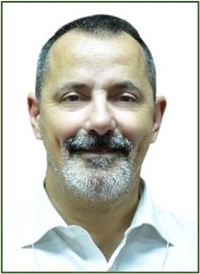 Dr. Alexis Drogoul is currently the representative of IRD in Vietnam and Philippines. He is also a Senior Researcher at IRD working on agent-based simulation of complex systems, mainly by developing the GAMA platform (http://gama-platform.org). This platform aims to make available to non-computer specialists designing tools of spatially explicit models, multi-formalisms and multi-scales, and enable "smart" exploration (using simulation and optimization) of the area of their parameters. Since 2007, Dr. Drogoul has been working in Vietnam to enhance the research capacity of Vietnamese teams (MSI-IFI, DREAM-CTU, ICT Lab-USTH) on the design of models for environmental decision support and adaptation to climate change in urban areas, within the framework of several international research projects. Dr. Drogoul obtained his PhD degree from the University of Paris in 1993, which recruited him as an Associate Professor. He became Full Professor in 2000.
Dr. Alexis Drogoul is currently the representative of IRD in Vietnam and Philippines. He is also a Senior Researcher at IRD working on agent-based simulation of complex systems, mainly by developing the GAMA platform (http://gama-platform.org). This platform aims to make available to non-computer specialists designing tools of spatially explicit models, multi-formalisms and multi-scales, and enable "smart" exploration (using simulation and optimization) of the area of their parameters. Since 2007, Dr. Drogoul has been working in Vietnam to enhance the research capacity of Vietnamese teams (MSI-IFI, DREAM-CTU, ICT Lab-USTH) on the design of models for environmental decision support and adaptation to climate change in urban areas, within the framework of several international research projects. Dr. Drogoul obtained his PhD degree from the University of Paris in 1993, which recruited him as an Associate Professor. He became Full Professor in 2000. -
Dr. Patrick Taillandier
 Dr. Patrick Taillandier is a researcher in computer science in the unit of Mathematics and Applied Computer Science of Toulouse (MIAT) of the National Research Institute for Agriculture, Food and the Environment (INRAE). He spent five years at the University of Rouen, where he was an Associate Professor and the recipient of a chair of excellence in geographic modeling. Since October 2020, he has been hosted in Vietnam by the IRD and the University of Thuy Loi. His research focus on computer simulation and has been particularly interested in recent years in the modeling of human behavior. Dr. Taillandier obtained his Master’s degree in Artificial Intelligence in 2002 and a PhD in Computer Science in 2008 from the University of Paris. The development of the GAMA platform has been an essential part of his work ever since he finished his PhD.
Dr. Patrick Taillandier is a researcher in computer science in the unit of Mathematics and Applied Computer Science of Toulouse (MIAT) of the National Research Institute for Agriculture, Food and the Environment (INRAE). He spent five years at the University of Rouen, where he was an Associate Professor and the recipient of a chair of excellence in geographic modeling. Since October 2020, he has been hosted in Vietnam by the IRD and the University of Thuy Loi. His research focus on computer simulation and has been particularly interested in recent years in the modeling of human behavior. Dr. Taillandier obtained his Master’s degree in Artificial Intelligence in 2002 and a PhD in Computer Science in 2008 from the University of Paris. The development of the GAMA platform has been an essential part of his work ever since he finished his PhD. -
Mr. Arthur Brugière
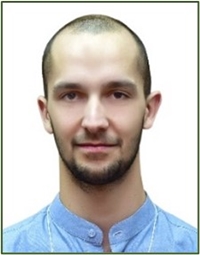 Mr. Arthur Brugière is a Ph.D student in co-tutelle at Sorbonne University (France) and Thuyloi University (Vietnam). His research focus on dynamic coupling and scaling of complex socio-environmental models. He is specialized in agent-based model exploration on high performance computing, Big data analysis and visualization. He has been previously involved in a project studying the mass evacuation strategies of territories under the threat of imminent events due to natural or technical hazards.
Mr. Arthur Brugière is a Ph.D student in co-tutelle at Sorbonne University (France) and Thuyloi University (Vietnam). His research focus on dynamic coupling and scaling of complex socio-environmental models. He is specialized in agent-based model exploration on high performance computing, Big data analysis and visualization. He has been previously involved in a project studying the mass evacuation strategies of territories under the threat of imminent events due to natural or technical hazards. -
Dr. Nguyen Ngoc Doanh
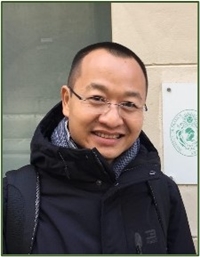 Dr. Nguyen Ngoc Doanh is the Deputy Head of the Department of Science and Technology, Thuy Loi University. Prior to joining Thuy Loi University, he served as Lecturer at Hanoi National University of Education right after he obtained his baccalaureate degree. He was also Lecturer at Hanoi University of Science and Technology for 12 years. He received his Ph.D. in Computer Science from the University of Pierre and Marie Curie Paris 6, France in 2010. He was offered a postdoctoral fellowship for UMMISCO UMI 209, IRD, and INRA in France for one year, and later became a member of UMMISCO. He was responsible for the South-East Asia Center in UMMISCO and also served as Team Leader of the WARM research group, a new associated team in UMMISCO founded by a group of young Vietnamese researchers. The research group aimed to apply advanced information technology to solve some practical sustainable problems in Vietnam. The latest contribution of the WARM/UMMISCO research group is to join the coronavirus disease (Covid-19) expert group under the Rapid Response Team supporting the National Committee Against COVID-19 pandemic.
Dr. Nguyen Ngoc Doanh is the Deputy Head of the Department of Science and Technology, Thuy Loi University. Prior to joining Thuy Loi University, he served as Lecturer at Hanoi National University of Education right after he obtained his baccalaureate degree. He was also Lecturer at Hanoi University of Science and Technology for 12 years. He received his Ph.D. in Computer Science from the University of Pierre and Marie Curie Paris 6, France in 2010. He was offered a postdoctoral fellowship for UMMISCO UMI 209, IRD, and INRA in France for one year, and later became a member of UMMISCO. He was responsible for the South-East Asia Center in UMMISCO and also served as Team Leader of the WARM research group, a new associated team in UMMISCO founded by a group of young Vietnamese researchers. The research group aimed to apply advanced information technology to solve some practical sustainable problems in Vietnam. The latest contribution of the WARM/UMMISCO research group is to join the coronavirus disease (Covid-19) expert group under the Rapid Response Team supporting the National Committee Against COVID-19 pandemic. -
Dr. Nathaniel C. Bantayan
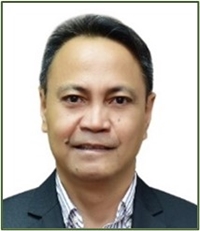 Dr. Nathaniel C. Bantayan is a Professor of Forest Management at the Institute of Renewable Natural Resources (IRNR), College of Forestry and Natural Resources (CFNR), University of the Philippines Los Baños (UPLB). His research interests include GIS-based biodiversity resource assessment, monitoring and evaluation, development of decision support systems and tools, early warning systems, and watershed management planning and forest inventory and assessment. He wrote a seminal book on GIS that is being used as the textbook for GIS in environment, forestry, and natural resources. Dr. Bantayan is an accomplished researcher counting more than 20 research programs and projects to his name. He has co-authored ten books; more than 50 papers and journals, and attended international conferences in the USA, Europe, and Asia. Dr. Bantayan was a member of the International Society for Ecological Modeling (2016-2018). He obtained his B.S. Forestry from UPLB, Master of Science in Tropical Forestry from Wageningen Research University, The Netherlands, and Ph.D. in Engineering from The University of Melbourne in Australia.
Dr. Nathaniel C. Bantayan is a Professor of Forest Management at the Institute of Renewable Natural Resources (IRNR), College of Forestry and Natural Resources (CFNR), University of the Philippines Los Baños (UPLB). His research interests include GIS-based biodiversity resource assessment, monitoring and evaluation, development of decision support systems and tools, early warning systems, and watershed management planning and forest inventory and assessment. He wrote a seminal book on GIS that is being used as the textbook for GIS in environment, forestry, and natural resources. Dr. Bantayan is an accomplished researcher counting more than 20 research programs and projects to his name. He has co-authored ten books; more than 50 papers and journals, and attended international conferences in the USA, Europe, and Asia. Dr. Bantayan was a member of the International Society for Ecological Modeling (2016-2018). He obtained his B.S. Forestry from UPLB, Master of Science in Tropical Forestry from Wageningen Research University, The Netherlands, and Ph.D. in Engineering from The University of Melbourne in Australia. -
Dr. Maria Art Antonette D. Clariño
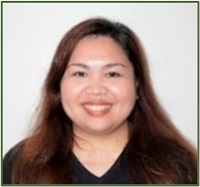 Dr. Maria Art Antonette D. Clariño is an Associate Professor at the Institute of Computer Science, College of Arts and Sciences, UPLB. She has published in several journals and has presented in local and international conferences for papers in modeling and simulation, digital image analysis, natural language processing, and computing education. She is a Regular Member of the National Research Council of the Philippines and is currently a member of the Board of Directors for Computing Society of the Philippines SIG-SPice. Dr. Clariño obtained her BS Computer Science (magna cum laude), MS Computer Science (DOST-PCASTRD scholar), and PhD Computer Science minor in Botany (DOST-ASTHRDP scholar) from UPLB.
Dr. Maria Art Antonette D. Clariño is an Associate Professor at the Institute of Computer Science, College of Arts and Sciences, UPLB. She has published in several journals and has presented in local and international conferences for papers in modeling and simulation, digital image analysis, natural language processing, and computing education. She is a Regular Member of the National Research Council of the Philippines and is currently a member of the Board of Directors for Computing Society of the Philippines SIG-SPice. Dr. Clariño obtained her BS Computer Science (magna cum laude), MS Computer Science (DOST-PCASTRD scholar), and PhD Computer Science minor in Botany (DOST-ASTHRDP scholar) from UPLB. -
Mr. Paul Joseph B. Ramirez
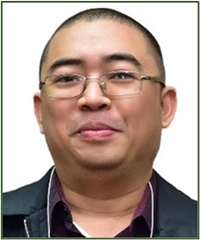 Mr. Paul Joseph B. Ramirez is Assistant Professor, Department of Economics, College of Economics and Management, UPLB. In 2014-2018, he served as Research Fellow at the WorldFish – Philippine Country Office where he was involved in the design and development of framework for effective monitoring and evaluation of projects and provided technical support to national and regional research initiatives, and represented the country office in relevant activities, events, and fora. With his areas of expertise in fisheries economics, agri-fishery value chains, microeconomics theory and international economics, Mr. Ramirez has authored and co-authored numerous publications and has been involved in various international and regional research collaborative programs. Prof. Ramirez pursued his Master of Arts in Economics from the University of the Philippines Diliman and BS in Economics (magna cum laude) from UPLB.
Mr. Paul Joseph B. Ramirez is Assistant Professor, Department of Economics, College of Economics and Management, UPLB. In 2014-2018, he served as Research Fellow at the WorldFish – Philippine Country Office where he was involved in the design and development of framework for effective monitoring and evaluation of projects and provided technical support to national and regional research initiatives, and represented the country office in relevant activities, events, and fora. With his areas of expertise in fisheries economics, agri-fishery value chains, microeconomics theory and international economics, Mr. Ramirez has authored and co-authored numerous publications and has been involved in various international and regional research collaborative programs. Prof. Ramirez pursued his Master of Arts in Economics from the University of the Philippines Diliman and BS in Economics (magna cum laude) from UPLB. -
Ms. Zenith O. Arnejo
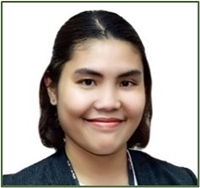 Ms. Zenith O. Arnejo is Assistant Professor at the Institute of Computer Science, College of Arts and Sciences, UPLB. Ms. Arnejo has been doing research in Image Processing, Machine Learning and Agent-Based Modeling. She worked as Senior Computer Programmer for a TETRA TECH/USAID OCEANS-funded project on the "Use of Catch Documentation and Traceability (CDT) Data to Improve Fisheries Management in the Philippines." Ms. Arnejo finished her BS Computer Science (cum laude), and MS Computer Science (DOST-ASTHRDP) from UPLB.
Ms. Zenith O. Arnejo is Assistant Professor at the Institute of Computer Science, College of Arts and Sciences, UPLB. Ms. Arnejo has been doing research in Image Processing, Machine Learning and Agent-Based Modeling. She worked as Senior Computer Programmer for a TETRA TECH/USAID OCEANS-funded project on the "Use of Catch Documentation and Traceability (CDT) Data to Improve Fisheries Management in the Philippines." Ms. Arnejo finished her BS Computer Science (cum laude), and MS Computer Science (DOST-ASTHRDP) from UPLB. -
Dr. Cristino L. Tiburan, Jr.
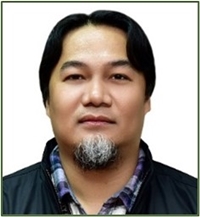 Dr. Cristino L. Tiburan, Jr. is Associate Professor at the IRNR, CFNR, UPLB. His fields of expertise include GIS, Remote Sensing, Environmental Modeling, Hazard Mapping, Vulnerability Assessment and Risk Mapping, Land Cover Mapping, among others. He has published numerous papers in scientific journals and book and was a recipient of the One UP Professorial Chair and Faculty Grant Awards (2019-2021) – Outstanding Teaching and Research. Dr. Tiburan has served as GIS and Remote Sensing Specialist, Disaster Risk Reduction (DRR) Specialist, Environmental Modeling Expert working on land cover change analysis, biodiversity studies and watershed management. He earned his Doctoral degree in Global Environmental from Kyoto University, Japan in 2012; Master of Science in Forestry and Bachelor of Science in Forestry from the University of the Philippines Los Baños in 2002 and 1997, respectively.
Dr. Cristino L. Tiburan, Jr. is Associate Professor at the IRNR, CFNR, UPLB. His fields of expertise include GIS, Remote Sensing, Environmental Modeling, Hazard Mapping, Vulnerability Assessment and Risk Mapping, Land Cover Mapping, among others. He has published numerous papers in scientific journals and book and was a recipient of the One UP Professorial Chair and Faculty Grant Awards (2019-2021) – Outstanding Teaching and Research. Dr. Tiburan has served as GIS and Remote Sensing Specialist, Disaster Risk Reduction (DRR) Specialist, Environmental Modeling Expert working on land cover change analysis, biodiversity studies and watershed management. He earned his Doctoral degree in Global Environmental from Kyoto University, Japan in 2012; Master of Science in Forestry and Bachelor of Science in Forestry from the University of the Philippines Los Baños in 2002 and 1997, respectively. -
Mr. Leonardo D. Barua
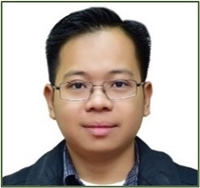 Mr. Leonardo D. Barua is a Licensed Forester and currently working as a University Extension Specialist at the Makiling Center for Mountain Ecosystems. At the Center, he is involved in various research and extension projects utilizing his background on GIS and remote sensing. He took up Forestry specializing on forest resource management for his bachelor’s degree and followed it up with Natural Resource Conservation for his master’s degree. His recent work includes participating research on forest canopy gap and landslide vegetation regeneration characterization using low altitude remote sensing using drones. He has presented in various local and international symposia on research using of GIS and remote sensing technologies on natural resource management.
Mr. Leonardo D. Barua is a Licensed Forester and currently working as a University Extension Specialist at the Makiling Center for Mountain Ecosystems. At the Center, he is involved in various research and extension projects utilizing his background on GIS and remote sensing. He took up Forestry specializing on forest resource management for his bachelor’s degree and followed it up with Natural Resource Conservation for his master’s degree. His recent work includes participating research on forest canopy gap and landslide vegetation regeneration characterization using low altitude remote sensing using drones. He has presented in various local and international symposia on research using of GIS and remote sensing technologies on natural resource management.
About the Organizers
-
Southeast Asian Regional Center for Graduate Study and Research in Agriculture (SEARCA)
 The Southeast Asian Regional Center for Graduate Study and Research in Agriculture (SEARCA) is one of the 26 specialist institutions of the Southeast Asian Ministers of Education Organization (SEAMEO). Founded on 27 November 1966, SEARCA is mandated to strengthen institutional capacities in agricultural and rural development in Southeast Asia through education and collective learning, research and thought leadership, and emerging innovation for growth. It serves the 11 SEAMEO member countries, namely, Brunei Darussalam, Cambodia, Indonesia, Lao People's Democratic Republic, Malaysia, Myanmar, the Philippines, Singapore, Thailand, Timor-Leste, and Vietnam. SEARCA is hosted by the Government of the Philippines on the campus of the University of the Philippines Los Baños (UPLB) in Laguna, Philippines. It is supported by donations from SEAMEO members and associate member states, other governments, and various international donor agencies.
The Southeast Asian Regional Center for Graduate Study and Research in Agriculture (SEARCA) is one of the 26 specialist institutions of the Southeast Asian Ministers of Education Organization (SEAMEO). Founded on 27 November 1966, SEARCA is mandated to strengthen institutional capacities in agricultural and rural development in Southeast Asia through education and collective learning, research and thought leadership, and emerging innovation for growth. It serves the 11 SEAMEO member countries, namely, Brunei Darussalam, Cambodia, Indonesia, Lao People's Democratic Republic, Malaysia, Myanmar, the Philippines, Singapore, Thailand, Timor-Leste, and Vietnam. SEARCA is hosted by the Government of the Philippines on the campus of the University of the Philippines Los Baños (UPLB) in Laguna, Philippines. It is supported by donations from SEAMEO members and associate member states, other governments, and various international donor agencies. -
French National Research Institute for Sustainable Development (IRD)
 The French National Research Institute for Sustainable Development (IRD) is an internationally recognized multidisciplinary organization and a key French player on the international development agenda. It is also a French public science and technology establishment (EPST) under the joint authority of the French Ministry of Higher Education and Research and the Ministry of Foreign Affairs and International Development. It works based on an original model: equitable scientific partnership with developing countries, primarily those in the intertropical regions and the Mediterranean area. The IRD believes that only this model allows it to design solutions which are adapted to the challenges that humans and the planet are facing: pandemics, climate change, humanitarian and political crises, etc. The IRD works on the premise that development challenges are challenges for the whole planet.
The French National Research Institute for Sustainable Development (IRD) is an internationally recognized multidisciplinary organization and a key French player on the international development agenda. It is also a French public science and technology establishment (EPST) under the joint authority of the French Ministry of Higher Education and Research and the Ministry of Foreign Affairs and International Development. It works based on an original model: equitable scientific partnership with developing countries, primarily those in the intertropical regions and the Mediterranean area. The IRD believes that only this model allows it to design solutions which are adapted to the challenges that humans and the planet are facing: pandemics, climate change, humanitarian and political crises, etc. The IRD works on the premise that development challenges are challenges for the whole planet.IRD has established long-term partnerships with a number of major Vietnamese research and training institutions, which include: 1) Ministry of Science and Technology; 2) National Institute of Hygiene and Epidemiology; 3) National Institute of Nutrition; 4) Vietnamese Academy of Agricultural Sciences (AGI, SFRI, PPRI, CASRAD); 5) Vietnamese Academy of Science and Technology ; and Vietnamese Academy of Social Sciences, among others.
IRD also had partnerships with numerous international organizations and agencies in Vietnam as follows: Agence Universitaire de la Francophonie (AUF); World Bank; Department for International Development (DFID- UK); ETH Zurich; International Foundation for Science (IFS); International Water Management Institute (IWMI); International Labor Organization (ILO); WHO; Oxford University Clinical Research Unit (OUCRU); UN World Food Program (WFP); UNDP; UNICEF; European Union; and the International Rice Research Institute (IRRI).
IRD shares its representative office in Hanoi with CIRAD in the French House of Science. -
UPLB-College of Arts and Sciences (CAS)
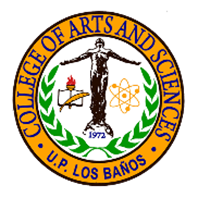 The College of Arts and Sciences (CAS) is the center of education in the basic sciences, humanities, liberal arts, and foundation courses in UPLB.
The College of Arts and Sciences (CAS) is the center of education in the basic sciences, humanities, liberal arts, and foundation courses in UPLB.CAS is composed of nine units, namely: the Institute of Biological Sciences (IBS), Institute of Chemistry (IC), Institute of Computer Science (ICS), Institute of Mathematical Sciences and Physics (IMSP), Institute of Statistics (INSTAT), Department of Humanities (DHUM), Department of Social Sciences (DSS), Department of Human Kinetics (DHK), and UP Rural High School (UPRHS). It houses twelve (12) degree program offerings. The IBS, IC, and IMSP were declared as National Centers of Excellence in the Basic Sciences by virtue of Executive Order No. 889 on March 23, 1983. On November 23, 2015, IBS, ICS, and INSTAT were recognized as Centers of Excellence by CHED. The BS Biology Program passed the ASEAN University Network-Quality Assurance assessment on February 18, 2014. It is the first undergraduate program of UPLB to pass such international accreditation.
The CAS faculty and staff engage in various research endeavors in areas including conservation and sustainability, habitat restoration, resources assessment, vulnerability assessment, diversity, social media, agriculture as an industry, agricultural insurance, cardio fitness, disaster risk and reduction management, S&T-based social enterprise development, and social science research, among others.
Likewise, the CAS conducts extension activities ranging from training programs, including short-term English language course/tutorials; technical assistance and laboratory services; consultancy services; and cultural performances. The basic specialized training programs are designed to increase livelihood know-how, boost teaching and research capability, and improve managerial skills of the intended clientele. CAS is also actively involved in implementing its National Service Training Program, which caters to beneficiaries in Los Baños and Bay.
-
UPLB-College of Economics and Management (CEM)
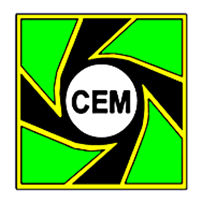 The College of Economics and Management (CEM) is composed of the Department of Agricultural and Applied Economics (DAAE), Department of Economics (DE), Department of Agribusiness Management and Entrepreneurship (DAME), the Institute of Cooperatives and Bio-Enterprise Development (ICOPED), the Agribusiness Center for Entrepreneurship (ACE), and the Rural Economic Development and Renewable Energy Policy Center (REDREC).
The College of Economics and Management (CEM) is composed of the Department of Agricultural and Applied Economics (DAAE), Department of Economics (DE), Department of Agribusiness Management and Entrepreneurship (DAME), the Institute of Cooperatives and Bio-Enterprise Development (ICOPED), the Agribusiness Center for Entrepreneurship (ACE), and the Rural Economic Development and Renewable Energy Policy Center (REDREC).CEM envisions itself as a center of excellence in undergraduate and graduate instruction, research and extension in economics, agricultural and applied economics, cooperative development, management, and entrepreneurship in Asia. CEM engages in policy and development-oriented research, policy advocacy, and extension services that promote efficiency, equity, competitiveness, and environmental sustainability.
The College conducts R&E activities in economics, agricultural and applied economics, and agribusiness management focused on promoting efficient and competitive economic activities, improving income distribution, protecting the environment, and managing natural resources. CEM collaborates with the Tokyo University of Agriculture in conducting the Philippine Bio-business Practice that provides Japanese students with hands-on experience in tropical agriculture, as well as with other Asian universities through various student and faculty exchange programs. ICOPED, a cooperative training service provider, offers training to professionals to build competencies and skills to manage and operate cooperatives as viable economic and social enterprises.
-
UPLB-College of Forestry and Natural Resources (CFNR)
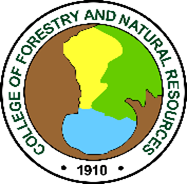 The College of Forestry and Natural Resources (CFNR) is the top-performing forestry school in the country. It averaged a passing rate of 99.06% in the Forester Licensure Examination for the last five years.
The College of Forestry and Natural Resources (CFNR) is the top-performing forestry school in the country. It averaged a passing rate of 99.06% in the Forester Licensure Examination for the last five years.Its BS Forestry degree program is certified by the ASEAN University Network Quality Assurance and is consistently recognized as a Center of Excellence (COE) in Forestry Education by CHED in the years 2000-2005, 2009-2012, 2012-2015 and 2016-2018.
The College manages the Mount Makiling Forest Reserve, a 4,000 hectare biodiversity hotspot, which serves as a living and learning laboratory for students. It was declared an ASEAN Heritage Park in 2013.
The College implements collaborative and interdisciplinary research, development, and extension programs in integrated natural resources management, biodiversity conservation, carbon sequestration and climate change, geo-spatial technology, forest biotechnology, environmental forestry, agroforestry, sustainable forest products utilization, forest policies, mountain ecosystems development, and social forestry and governance. It has embarked on nanotechnology research (nanocellulose research and nanofiber electrospinning) and on studies on industrial tree plantation species (ITIPS) for biopolymer applications. CFNR's public service activities include watershed protection campaigns, eco-school projects, technology demonstrations, annual youth summer programs, park interpretation and visitor services, roving seminars on conserving MMFR, livelihood profiling, IEC programs, educators' fora and community linkaging, among others.
